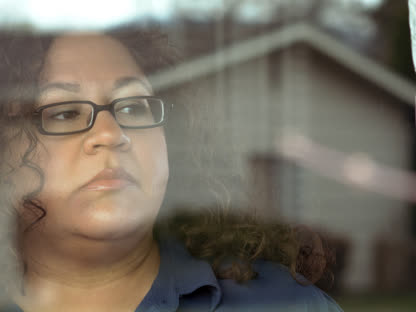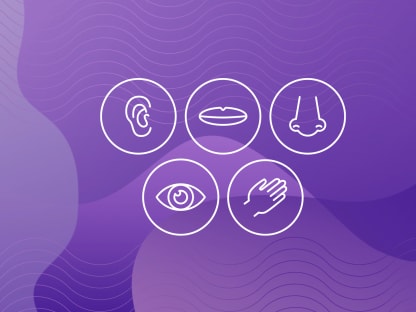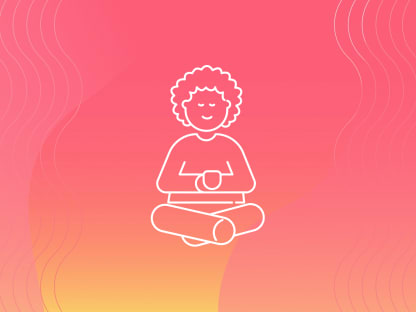Obsessive-Compulsive Disorder (OCD)
Make an Appointment
Our team is here to help you make an appointment with the specialists that you need.
Obsessive-Compulsive Disorder (OCD)
Condition Basics
What is obsessive-compulsive disorder (OCD)?
Obsessive-compulsive disorder (OCD) is a mental health condition that causes repeated unwanted thoughts. To get rid of them, you may do the same tasks over and over. For example, if you fear that everything you touch has germs on it, you may wash your hands repeatedly to ease your fear.
What causes it?
Experts don't know the exact cause of OCD. There may be a problem with the way one part of the brain sends information to another part. Not having enough of a brain chemical called serotonin may be part of the problem.
What are the symptoms?
Obsessions and compulsions are key symptoms of OCD. Obsessions are unwanted thoughts, ideas, and impulses. They won't go away. Compulsions are behaviors that you repeat to try to control the obsessions. The symptoms usually take up a lot of time, more than 1 hour a day.
How is it diagnosed?
Your doctor can check for OCD by asking about your symptoms and your past health. A physical exam may also be done. You may also get a mental health assessment. This is a check of your emotions and how you think, reason, and remember.
How is OCD treated?
Treatment for OCD includes counseling and medicines. Using both tends to work best.
Counseling includes a type of cognitive behavioral therapy called exposure and response prevention (ERP). ERP slowly increases your contact with the thing that causes worries or anxiety. With the help of a counselor, ERP can reduce your symptoms over time.
Antidepressant medicines called selective serotonin reuptake inhibitors (SSRIs) are most often used. Antidepressants work differently for everyone. Your doctor will help find the medicine and dose that works best for you.
Treatment can make your symptoms less severe. But you may still have some mild symptoms after you start treatment.
Health Tools
Health Tools help you make wise health decisions or take action to improve your health.
Symptoms
Symptoms of OCD include:
- Obsessions.
These are unwanted thoughts, ideas, and impulses that you have again and again. They won't go away. Examples include:
- A driving need to do things perfectly or correctly.
- A fear of getting dirty or infected.
- Compulsions.
These are behaviors that you repeat to try to control the obsessions. Examples include:
- Washing, or checking that something has been done.
- Counting, often while doing another compulsive action, such as hand-washing.
The obsessions or compulsions usually take up a lot of time—more than 1 hour a day.
Watch
What Happens
With OCD, you have disturbing, obsessive thoughts that cause fear or anxiety. To get rid of these thoughts and relieve the fear, you perform rituals, such as repeated hand-washing or checking that something has been done. But the relief is only temporary. The thoughts come back, and you repeat the rituals.
The rituals or behaviors take up a lot of time. They have a big impact on your daily life. If your fear involves unfamiliar situations, you may be so obsessed by the fears that you stop going outside of your home. OCD can lower your quality of life because it affects your ability to work and have relationships.
Treatment, such as counseling and medicines, can reduce the symptoms of OCD.
Exams and Tests
Your doctor can check for OCD by asking about your symptoms and your past health. A physical exam may also be done. And you may also get a mental health assessment. This is a check of your emotions and how well you can think, reason, and remember. You may be given written or verbal tests. The doctor may also look at your appearance, your mood, your behavior, and how you express yourself.
Learn more
Self-Care
It's important to take care of yourself every day when you have OCD. Take your medicines as directed. And do the homework your therapist gives you. The homework may include exercises called ERP. This stands for exposure and response prevention.
Reducing overall stress in your life is not a proven treatment for OCD symptoms. But it may help you cope.
It's a good idea to involve family members and loved ones in your treatment. This is even more important if your doctor suggested that you have therapy together. Keep the lines of communication open. It may help you deal with relationships that have become strained during your condition.
Learn more
Watch
Helping Someone Who Has OCD
In order to help someone with OCD, it is important that family members or loved ones learn as much as possible about the condition.
It may help to attend counseling or support groups with or apart from your loved one who has OCD. You can learn ways to help the person with behavioral therapy. And you can learn ways to help them take medicines regularly.
You may also help by providing the health professional with information on behaviors and the effects of treatment.
How you respond to your loved one's symptoms is important. An angry response can make the symptoms worse. And accommodating the behaviors may also be harmful. It is important that you talk to your loved one's health professional about how you should respond and the best ways for you to help.
Credits
Current as of: July 31, 2024
Author: Ignite Healthwise, LLC Staff
Clinical Review Board
All Healthwise education is reviewed by a team that includes physicians, nurses, advanced practitioners, registered dieticians, and other healthcare professionals.
Current as of: July 31, 2024
Author: Ignite Healthwise, LLC Staff
Clinical Review Board
All Healthwise education is reviewed by a team that includes physicians, nurses, advanced practitioners, registered dieticians, and other healthcare professionals.
This information does not replace the advice of a doctor. Ignite Healthwise, LLC, disclaims any warranty or liability for your use of this information. Your use of this information means that you agree to the Terms of Use. Learn how we develop our content.
To learn more about Ignite Healthwise, LLC, visit webmdignite.com.
© 2024-2025 Ignite Healthwise, LLC.
This information does not replace the advice of a doctor. Ignite Healthwise, LLC, disclaims any warranty or liability for your use of this information. Your use of this information means that you agree to the Terms of Use. Learn how we develop our content.






